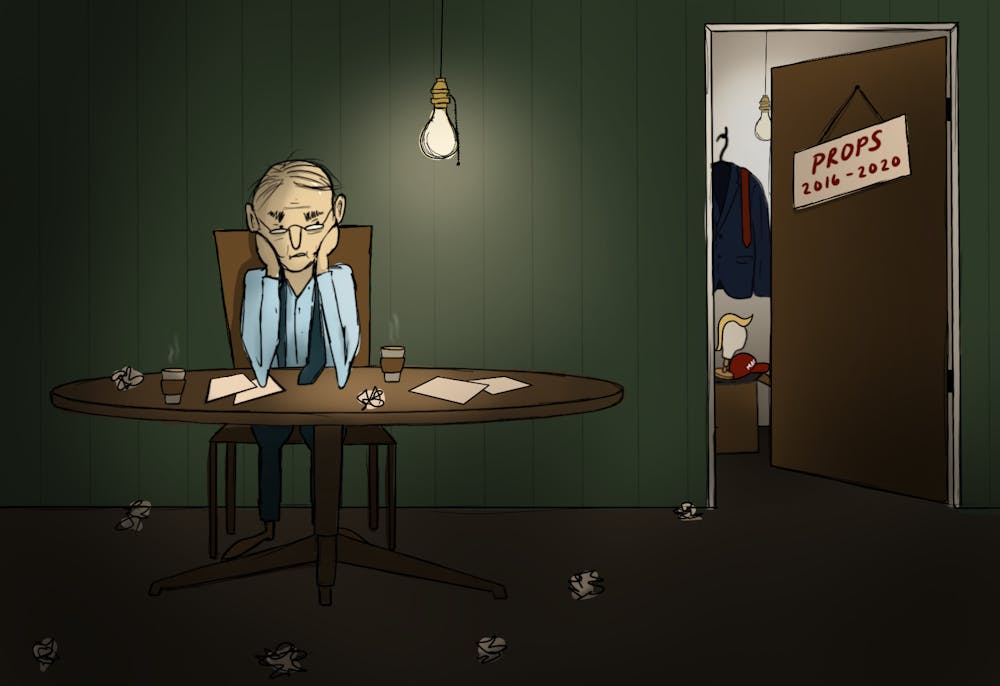Late-night TV has, frustratingly, looked to the Trump administration and its antics for content almost non-stop throughout the past four years. Following the administration’s exit, however, the industry will have to seek new ways of engaging an audience that was only tuning in for one reason – and the result will be less homogenous, more authentic and a whole lot funnier.
Trump was a golden opportunity for late-night TV. His countless controversial statements informed the jokes, monologues and rants of late-night hosts for years, and the industry played right into the growing media fervor that was raging since before he was elected.
Ratings from the time show how much of an impact Trump actually made. In early 2017, media analysts Ray Mayo and Jon Seitz wrote that just a year prior, Jimmy Fallon’s “The Tonight Show” topped ratings lists among late-night programs. Between 2016 and early 2017, however, Stephen Colbert’s “The Late Show” had taken the throne, and the reason was clear.
“While Jimmy Kimmel and Jimmy Fallon have often mocked Trump in their monologues and aired occasional comedy bits about the new administration, Colbert has been relentless in discussing the latest headlines about the President and his team every day,” Mayo and Seitz wrote.
The closer a host’s content aligned with the Trump news cycle, the more people watched the host's show. It really was that simple, and hosts that largely shied away from politically-charged content, such as Jimmy Fallon, saw the short end of the stick when it came to ratings.
However, where ratings soared, content suffered. Late-night comedy became monotonous, awkwardly hostile and numbingly repetitive when it leaned too heavily on Trump. This created a problem among viewers already battling Trump fatigue, who felt as though they couldn’t escape the constant onslaught of Trump news even from shows they used to just watch for a good laugh.
The rest is history – for the next four years, a less authentic late-night industry would enjoy a bubble of high viewership as long as Trump kept on producing the low-hanging fruit it needed.
And oh, did he produce. But all good things must come to an end, and on Jan. 20, the Trump presidency did just that. The pandemic had already put a dent in late-night viewership by the time Trump left office, and his exit poses a real issue for networks – will the viewers that he pulled in stick around now that he's out of office?
It turns out, the answer is maybe not. In an article for Vulture, Josef Adalian reasoned “there’s a good chance the Trump ratings bump could turn into a bubble once 45 leaves office . . . If that happens, some of the same trends which have been pulling down prime-time ratings will likely impact late night.”
It seems likely that a drop in viewership is on the horizon, and networks will certainly be preparing for that possibility. It’s for this reason that Trump’s departure is a blessing in disguise for late-night — the material is going to have to evolve to fill in the space that he left, and that can only be a good thing.
Without an endless source of controversies to recycle the same jokes about, late-night hosts are going to have to bring original, creative content to the table to combat the anticipated drop in ratings. Maintaining relevancy in a competitive market is already difficult without Trump to boost ratings, so the success of these shows will depend on how content evolves to respond to the loss of the Trump administration as a source of material.
Some will succeed, and the industry will be better off for it. There is a lot to love about late-night TV, and while it hasn’t been as entertaining during the past few years, there is undeniably great talent in the crowd of hosts that will hopefully produce funnier things than constant political commentary going forward.
Now that Trump is finished trying to make America great again, maybe we can try to make TV funny again.

